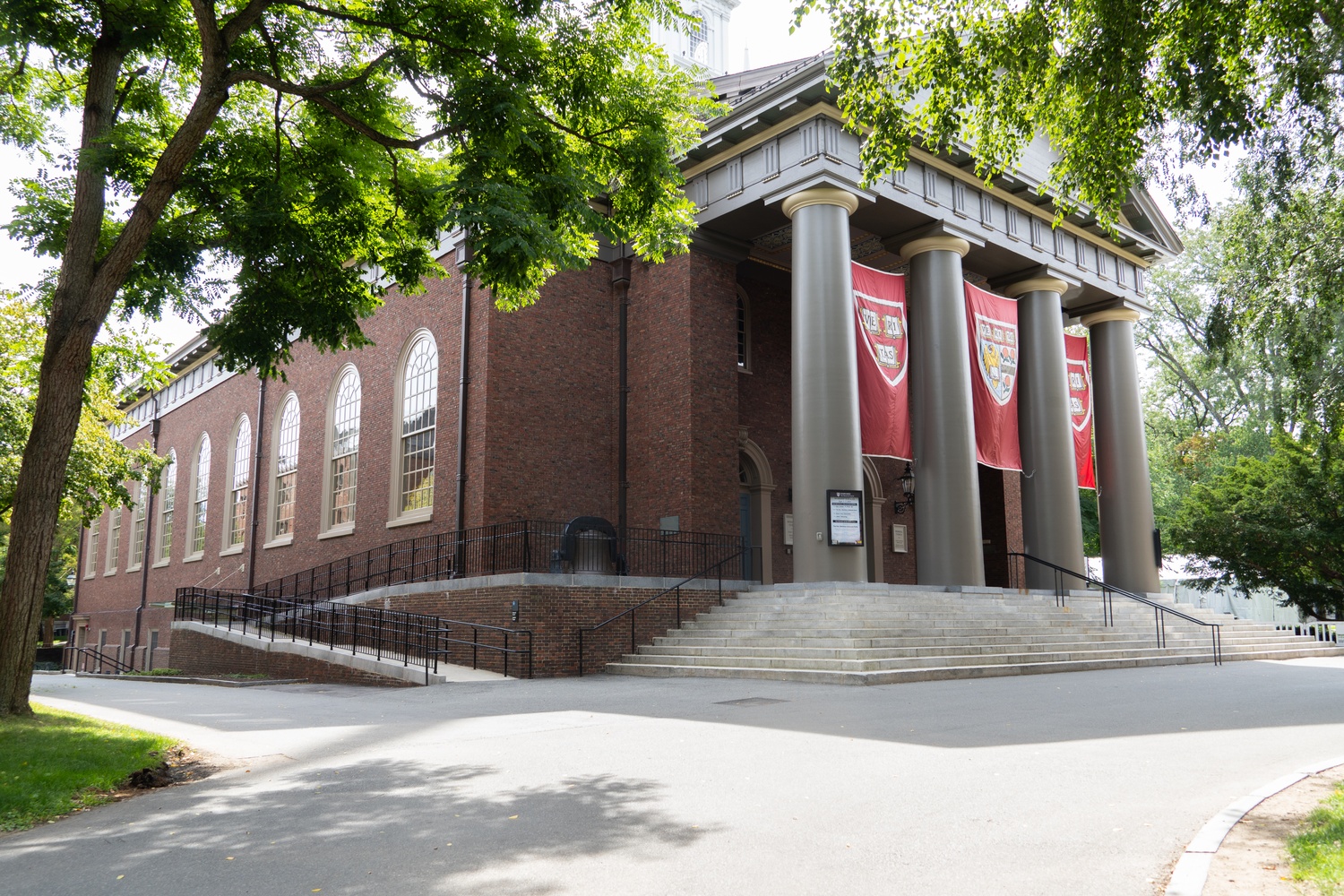
News
Summers Will Not Finish Semester of Teaching as Harvard Investigates Epstein Ties

News
Harvard College Students Report Favoring Divestment from Israel in HUA Survey

News
‘He Should Resign’: Harvard Undergrads Take Hard Line Against Summers Over Epstein Scandal

News
Harvard To Launch New Investigation Into Epstein’s Ties to Summers, Other University Affiliates

News
Harvard Students To Vote on Divestment From Israel in Inaugural HUA Election Survey
At Morning Prayers, Harvard’s Former Chief Diversity Officer Urges Students to Embrace Pluralism

Updated September 5, 2025, at 12:44 p.m.
Harvard’s chief Community and Campus Life officer Sherri A. Charleston, who led the University’s diversity office before it was renamed in April, said at a Memorial Church service on Thursday that her overhauled office was committed to elevating pluralism and going beyond “diversity in numbers.”
Charleston said that Harvard — which has spent years being buffeted by accusations of political intolerance and months as a political target for the Trump administration — may be uniquely able to demonstrate how to build understanding across differences.
“It’s rigorous in its demands and speaks of love that builds, unifies, and endures. A love undeterred by difference or by challenge,” Charleston said. “Perhaps no university, I submit to you, is better positioned than ours to deal with this.”
The Morning Prayers service, at which Charleston spoke, is held every weekday morning during the academic term, with a history stretching back to Harvard’s founding in 1636. Top campus administrators, including the University’s president and provost, often deliver the first services of the academic year.
Charleston used her address to sketch out her office’s mission, saying she hoped to “build community.”
“This is more than diversity in numbers,” she said. “It’s an act of recognition, a willingness to see each other, to respect each other, to relate to each other across our identities and ideologies, to anchor the pursuit of Veritas in the dignity of every person, and to connect our individual values to Harvard’s academic mission of excellence in teaching, learning, and research.”
Both Harvard’s campus culture and the demographics of its student body have been subject to scrutiny in recent years. Black and Latino enrollment at Harvard College and Harvard Law School fell after the Supreme Court struck down race-conscious admissions in 2023, and the Trump administration is pressuring universities to show their compliance with the ruling by disclosing more detailed race data.
Meanwhile, Harvard has stepped up its programming on religious pluralism and political dialogue as the war in Gaza drove a rift through its campus. But Harvard has simultaneously shuttered its diversity offices — including the University-wide Office of Equity, Diversity, Inclusion, and Belonging, which Charleston previously led — as the federal government argues that their work amounts to illegal racial discrimination.
Charleston’s morning prayer did not address race, gender, or the Israel-Palestine conflict, but she said her office would work to foster “belonging” among students.
“Each of us matters in making sure that every classroom, residential entryway, office, library, laboratory, is a place where everyone feels valued and seen,” she said.
And though she used the word “diversity” only once, she repeatedly linked students’ differences to Harvard’s academic mission, echoing remarks made by University President Alan M. Garber at Harvard’s annual Equity, Diversity, Inclusion, and Belonging Forum in February.
“As President Garber has reminded us last year, our community accelerates excellence because we embrace difference,” Charleston said. “We learn, not just alongside, but from one another. Everyone benefits when you can all participate in the life of the University.”
Charleston did not invoke the Trump administration’s siege on Harvard, instead focusing on what she described as a crisis of social isolation — particularly in the wake of the Covid-19 pandemic — and lack of mutual understanding.
“In a world yearning for connection, we have the profound privilege in our responsibility and opportunity to show what community looks like in practice,” she said. “The future of Harvard, and perhaps our fractured world, actually depends on it.”
She urged her listeners to take up the challenge of recognizing and caring for one another, even in difficult times, echoing the address read by poet Amanda S.C. Gorman ’20 at former President Joe Biden’s inauguration.
“As we move forward from this place, in community, let us remember that in any darkness, there is always light,” Charleston concluded. “If only we are brave enough to see it. If only we are brave enough to be it.”
Correction: September 5, 2025
A previous version of this article misquoted Sherri A. Charleston as saying, “The future of Harvard and perhaps a fraction of the world actually depends on it.” In fact, Charleston said, “The future of Harvard, and perhaps our fractured world, depends on it.”
—Staff writer Alexander W. Anoma can be reached at alexander.anoma@thecrimson.com. Follow him on X @AnomaAlexander.
—Staff writer Chantel A. De Jesus can be reached at chantel.dejesus@thecrimson.com. Follow her on X @c_a_dejesus.
Want to keep up with breaking news? Subscribe to our email newsletter.
